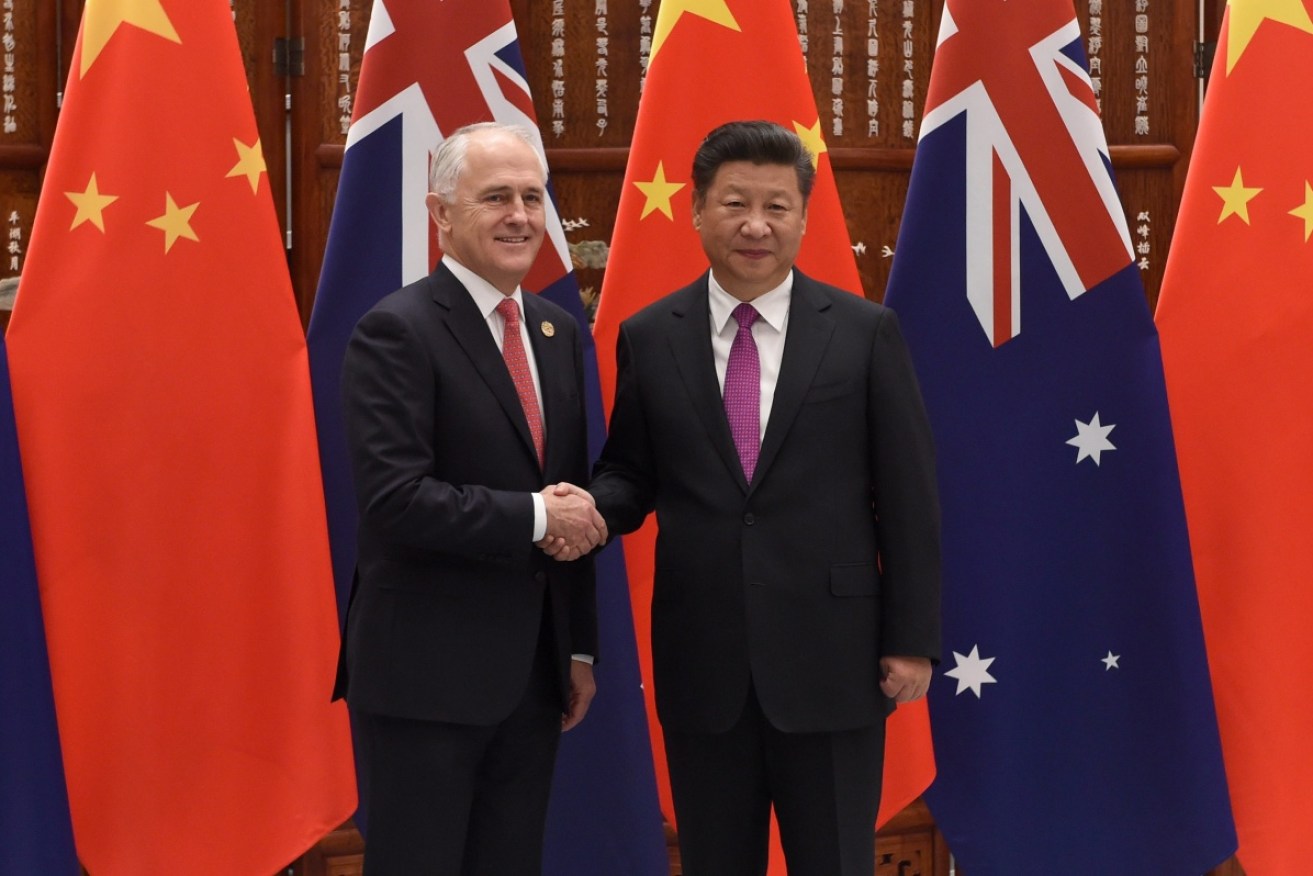End of the TPP: a headache for Turnbull, but a ‘win’ for consumers


The TPP has been considered an attempt by the US to temper Chinese economic influence. Photo: AAP
Critics have celebrated the demise of the Trans-Pacific Partnership that US President Donald Trump seems to have killed off, as experts warn the Australian government will struggle to revive it.
As one of his first acts in office, Mr Trump signed an executive order on Tuesday that pulled America out of the 12-nation trade agreement negotiated by his predecessor Barack Obama.
Prime Minister Malcolm Turnbull vowed to push ahead without the US, but he faces an uphill battle.
Professor Gary Sampson, a trade expert at The University of Melbourne, told The New Daily any future deal would not be done quickly.

US President Donald Trump holds up the executive order withdrawing the US from the TPP. Photo: Getty
“These negotiations have been going on for seven years. They are such a huge time commitment,” said Professor Sampson, a former director at the World Trade Organisation.
“The biggest hurdle is to convince 10 other heads of government that it’s worth going ahead. Not all have shown complete enthusiasm.
“Once you take the US out, all the trade-offs between the different countries that were made with the basis of having access to the US market have to be renegotiated.”
Professor Sampson said including China in a new agreement would be challenging.
“To include China in the negotiations would involve dropping commitments to labour and other non-trade standards from the agenda. It would have to be a very different set of negotiations.”
Agreeing that the deal was “dead” in its current form, Professor Sampson said Brexit would also be a factor for the government.
“It’s a question of priorities. How close will we get to serious negotiations for a free trade agreement with the UK in the future? In my view, it’s still years away, but would it be better to redirect our resources there?”
‘Better off without it’
Opposition Leader Bill Shorten described the deal as “dead in the water”, a development welcomed by the TPP’s long-term critics.
“It was all about increasing corporate rights at the expense of people’s rights,” Dr Patricia Ranald of the Australian Fair Trade and Investment Network told The New Daily.

Bill Shorten says the TPP is dead. Photo: Getty
Her organisation has long opposed the deal over concerns around the Investor State Dispute Settlement, which gave global companies the right to bypass Australian courts to sue the federal government.
“Foreign investors have used these laws in the past to challenge things like public health laws and even the minimum wage,” Dr Ranald said.
The deal would have also increased numbers of temporary migrant workers, who were “vulnerable to exploitation”, and extended monopolies for biologic medicines, she said. “That would have cost our public health system hundreds of millions of dollars.”
Consumer group CHOICE said the deal threatened food labelling and product safety regulations, such as “meaningful country of origin statements” and “health and nutritional information”.
“The US decision to pull out of the TPP is a stay of execution for Australia’s future food labelling and product safety laws,” CHOICE spokesman Tom Godfrey told The New Daily.
ACTU president Ged Kearney said the deal would have cost “tens of thousands of local jobs” and committed Australia to “accepting unlimited numbers of temporary workers”.
‘A big loss’
In contrast, Mr Turnbull described Mr Trump’s decision as a “big loss” as he holds out hope the deal can still go ahead without the US.
“There is also the opportunity for the TPP to proceed without the United States. I’ve had active discussions with other leaders as recently as last night,” Mr Turnbull told reporters.

Prime Minister Malcolm Turnbull and Japanese counterpart Shinzo Abe both support the TPP. Photo: AAP
Australia has discussed salvaging the deal with Canada, Mexico, Japan, New Zealand, Singapore, Malaysia, Chile and Peru, according to Trade Minister Steve Ciobo.
It has also been suggested that China or Indonesia could replace the US in a reformulated deal.
The government has maintained that the deal is vital for Australia’s economic future by opening up new markets for Australian exporters.
Australian food producers, such as the pork, cheese and sugar industries, were expected to benefit from reduced tariffs.
Business Council of Australia chief executive Jennifer Westacott said Mr Trump’s decision was disappointing.
“America’s inward turn makes it even more important for Australia to join with other countries in our region to open up markets and promote trade,” Ms Westacott said.
“Multilateral trade agreements are vital and Australia needs to get back to basics and determine how we can maximise our trade position within the Asia-Pacific region.”








